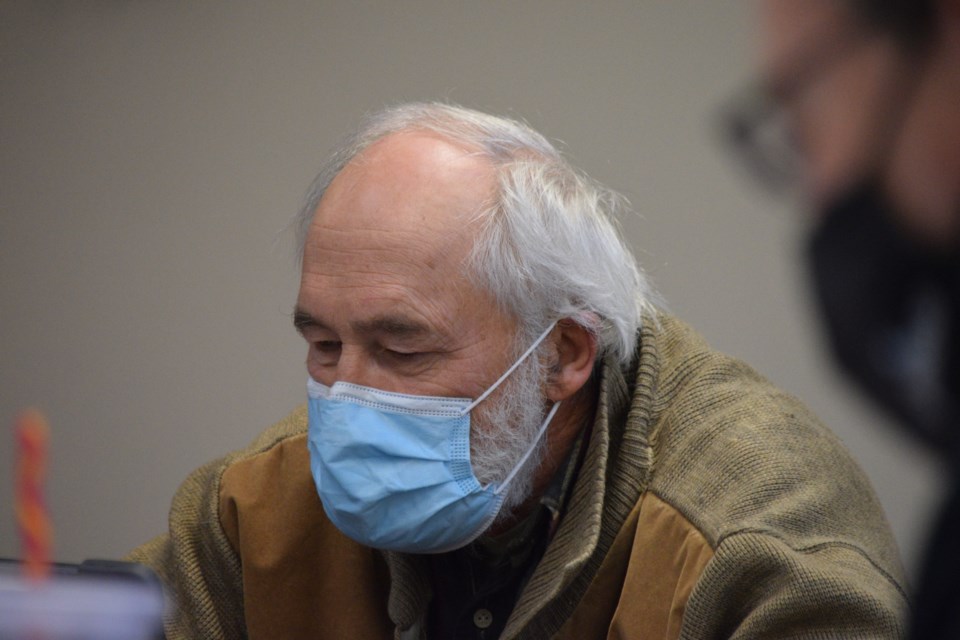BARRHEAD-Town of Barrhead residents will notice a change in how they are billed for their utilities and whether residents believe it is good or bad will largely depend on how much water they use.
On Jan. 5, during a special council meeting, councillors unanimously approved Bylaw 1-2022 (the Municipal Public Utilities Bylaw) in three straight readings. It should be noted that Coun. Ty Assaf was absent.
The bylaw, which retroactively comes into effect Jan. 1, effectively deletes the former tiered billing system, which included different rates based on water consumption rates.
Under the new system, users will be charged a $30 monthly service fee along with a unit rate of $2.37 per cubic metre. Sewer rates remain unchanged at 35 per cent of the water charge.
The bulk water and coin fill water rates also remain unchanged at $9.50 per cubic metre and $1 per 80 litres, respectively. The monthly garbage collection fee will increase slightly, up 30 cents to $29.50.
Chief administrative officer Edward LeBlanc said the change was made necessary, partly due to a close to five per cent increase in the amount the Barrhead Regional Water Commission (BRWC) charges for water.
The BRWC is an independent body that owns the region's water infrastructure, including pipelines and the water treatment plant. The commission sells the water to the municipalities. They, in turn, sell it to their residents.
Starting Jan. 1, BRWC's rate is $2.37 per cubic metre, up from $2.26 per cubic metre.
However, he said the change in the billing structure was more due to the recommendations of an ad hoc committee formed in December to go over the recommendations made by consultant K. David Campbell, as well as five potential fee structure alternatives created by administration.
Council commissioned the $31,630 report, which was received in August, out of concern that the town's water and sewer rates did not reflect the true cost of providing the service.
"To be fair, (the ad hoc committee's position) was to delete the tiered structure entirely," LeBlanc said.
Under the previous system, water users were charged $51.05 per month for the first 13.5 cubic metres of water. For the next 32 cubic metres, users were charged $2.24 per and for the next 682 cubic metres, users were charged $1.89 per.
According to the council information package, the new $30 base water charge will cover the town's costs and allow it to add about $68,200 (based on 2021 budget expenses) to the department's reserves, which sits at about $545,000.
LeBlanc said the committee recognized that going into the future, the cost of capital projects will most likely only increase, placing more importance on municipal reserves as provincial funding is trending downwards.
"The town's 2022 capital MSI (municipal infrastructure initiative) grant will be reduced by 70 per cent, but our costs will still be there, so we have to find another source of revenue," he said.
LeBlanc noted that the new fee structure for sewer rates would also allow the town to contribute another $25,800 annually based on the 2021 budget expenses to the department's capital reserve, which currently sits at $362,500.
He added that by endorsing the new bylaw, councillors would be shifting the financial responsibility away from low-consumption users, who had been effectively subsidizing high-volume water consumers.
Under the new rate structure, administration estimates that roughly a quarter of residents will see about an eight per cent reduction in their bill.
On the flip side, high-volume water users will see their bills increase substantially, as they will have to pay the unit price the BRWC charges the town. Later in the meeting, LeBlanc stated that the user that consumed the most water on average would see their utility bill increase by roughly 45 per cent.
"Admittedly, it is a big chunk, but they were not paying for the cost that the town incurred. It is a shift. Some might say it is a correction, and I wouldn't argue that," he said.
However, for the average household using 46 cubic metres of water bi-monthly when sewer and garbage charges are included, they will see an increase of $28.77 to their bi-monthly utility bill.
Coun. Rod Klumph recognized that the bylaw instituted a substantial change on how residents are billed but noted it is in line with Campbell's recommendations.
"He recommended that we simplify our billing that was hiding what was happening. Now it is clear," he said. "We also have to ensure we recover our costs and this is what the revamped billing system allows us to do, including building up our reserves for future upgrades."
Coun. Anthony Oswald agreed that the bylaw was necessary but asked if high-volume water users had been made aware of the pending changes that would significantly increase their utility bill.
LeBlanc said he attempted to contact the five highest water users, but unfortunately, he only was able to talk to one.
Barry Kerton, TownandCountryToday.com



